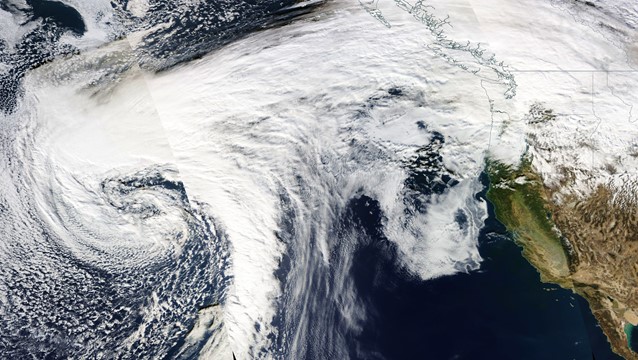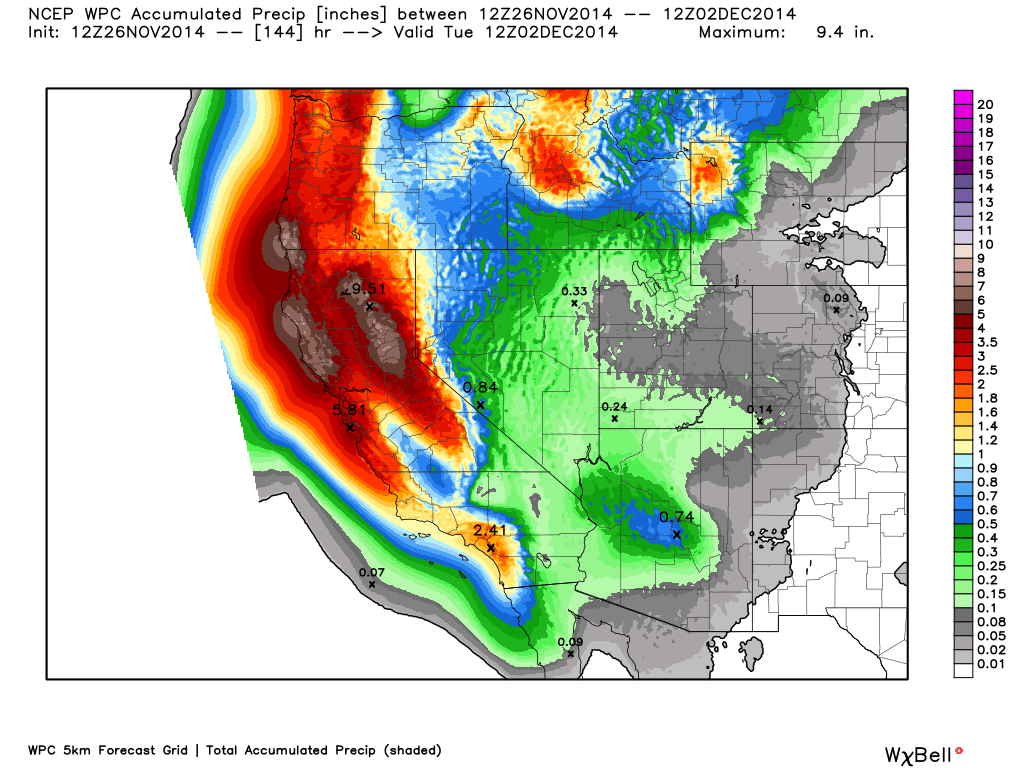A Pacific storm system continues its trek to California where it promises to bring 3 to 6 inches of much needed rain. The storm will stall and weaken just off-shore this weekend as another system from the Gulf of Alaska drops down and causes re-intensification. The result will be 3-5 days of on-and-off rains from Friday through Tuesday, with isolated areas possibly getting 9 inches or more (NCEP/WCP graphic courtesy of Weatherbell.com, click for full size):
Heavy rains are needed by reservoirs, currently at record-low levels, since light rains simply soak into the parched ground. While the storm will also bring 1-2 feet of welcome snowfall to the Sierra Nevada, the expected heavy rains are the most beneficial for filling reservoirs.

 Home/Blog
Home/Blog






👍Carta de Conducao
thanks for the content,nice blog i really appriciate your hard work keep it up. also visit for super fast
help links
It seems like you are describing a Pacific storm system approaching California and the potential weather conditions it may bring. While I don’t have access to real-time weather data or the ability to display graphics, I can provide some general information about Pacific storm systems and their effects.
Pacific storm systems, also known as atmospheric rivers, are long, narrow bands of moisture that transport large amounts of water vapor from the Pacific Ocean to land areas. These systems can bring significant rainfall and are often responsible for heavy precipitation events in California and other coastal regions.
Based on the information you provided, it appears that this particular storm system is expected to bring 3 to 6 inches of rainfall to California, which is considered a substantial amount and can help alleviate drought conditions. The storm is projected to stall and weaken just offshore over the weekend, likely due to interacting with another system from the Gulf of Alaska. This interaction could cause re-intensification of the storm and prolong the period of rainfall.
The forecast suggests that the on-and-off rain is expected to continue from Friday through Tuesday, spanning around 3 to 5 days. It’s important to note that weather forecasts can change, so it’s always recommended to follow updates from reliable sources such as the National Weather Service or local meteorological agencies.
cincinnatiseo.io/